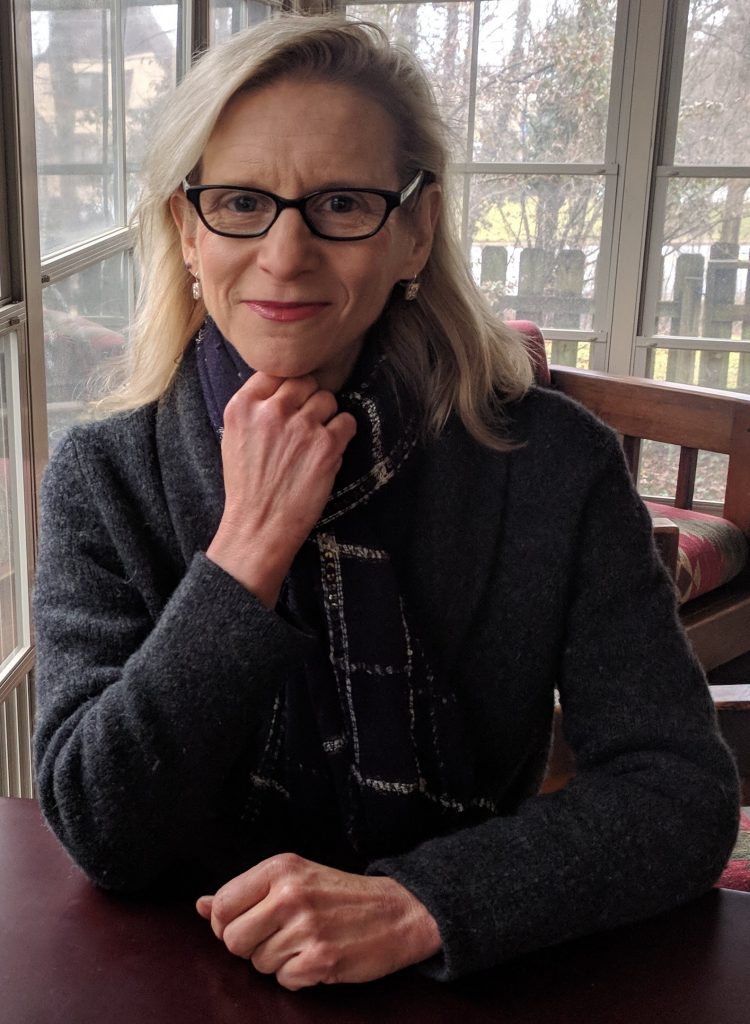AHA Member Spotlight: Caroline Waldron Merithew
Caroline Waldron Merithew is an associate professor of history at the University of Dayton. She lives in Dayton, Ohio, and has been an AHA member since 2002.
Alma mater/s: BA, University of Missouri, Columbia, 1990; MA and PhD, University of Illinois, Urbana-Champaign, 2000
Fields of interest: transnationalism, gender, labor, and immigration
Describe your career path. What led you to where you are today? My career path has been both my own but forged because of many people in my life—great advisors and mentors (including Jim Barrett, Donna Gabaccia, and David Roediger); supportive peers in graduate school (including Randi Storch, Toby Higbie, Kathy Mapes, Rose Holz, Tom Jordan, and Steve Vaughan); and incredible colleagues (including Haimanti Roy, Simanti Dasgupta, Juan Santamarina, David Darrow, Bobbi Sutherland, Chris Agnew, Mary Carlson, Una Cadegan, Ellen Fleischmann, Bill Trollinger, Janet Bednarek, Anca Glont, Todd Uhlman, Dorian Borbonus, Julius Amin, Tracey Jaffe, Renato Ventura, Franca Iacovetta, Jennifer Guglielmo, Judy Tzu-Chun Wu, and more).
What do you like the most about where you live and work? I have space, time, and access to pursue interdisciplinary research that is supported by my colleagues who are in the department of history as well as across campus. These connections prop up my research and teaching as well as underscore the role of academic service and governance in my career.
What projects are you currently working on? The two NEH grants I won reflect the diversity of my projects. The first will guide my recent work on transnational feminism and antifascism as it intensified during the 1920s and 1930s—and as a direct response to women’s activism against Italian colonial expansionism in the Horn of Africa. The NEH Summer Institute on Suffrage in the Americas is an exciting opportunity for me to think about the research part of the project and how to bring the work into the classroom. The second NEH grant—a Humanities Connections Planning Grant—I received, as a co-director with my colleague in biology at the University of Dayton, Carissa Krane, helps us think about interdisciplinary education and the how and why we might consider the humanities as a vital part of health and science degrees.
Have your interests evolved since graduation? If so, how? My interests, which were always embedded in comparative history, have become more transnational and global in scope. The role women have played in these movements have also become more and more central to my work.
What’s the most fascinating thing you’ve ever found at the archives or while doing research?One of the most fascinating things I found in the archives was in the British Library. It is a series of letters between the suffragist activist Sylvia Pankhurst and Haile Selassie. Those in themselves were gems. But what made them more valuable for me was how the topics discussed between this “great woman” and “great man” were similar to the ones I had found in correspondence of immigrant coal miners’ wives and union activists in the Midwest.
Is there an article, book, movie, blog etc. that you could recommend to fellow AHA members?The documentary that I find most compelling these days—and use in a number of different courses—is Anthony Giacchino’s Camden 28 about the Catholic Left and antiwar activism. On a more popular level, Steve Gillespie’s I, Tonya is one of my favorites of the year because of the way it exposes the intersection of class, gender, privilege, and the aesthetics and power of sport in US figure skating. I also found the performance of Allison Janney (a native of Dayton, Ohio) stunning.
What do you value most about the history discipline? Studying history, and being an historian, is a privilege. Knowing history is an obligation and necessity.
Why is membership in the AHA important to you? The AHA is an incredibly rich and diverse group of scholars whose work has helped ground my work.
Do you have a favorite AHA annual meeting anecdote you would like to share? Perhaps not my favorite, but certainly my most memorable AHA was the one when I was first on the job market and I got laryngitis. I still did the four interviews. Let’s just say it was a learning experience. My advice to grad students: reschedule the interviews if this happens to you. Tea, soup, and hot water will not help you through enough to get what you want.
AHA members are involved in all fields of history, with wide-ranging specializations, interests, and areas of employment. To recognize our talented and eclectic membership, AHA Today features a regular AHA Member Spotlight series.
This post first appeared on AHA Today.
Tags: Member Spotlight Global History Women, Gender, Sexuality
Comment
Please read our commenting and letters policy before submitting.







